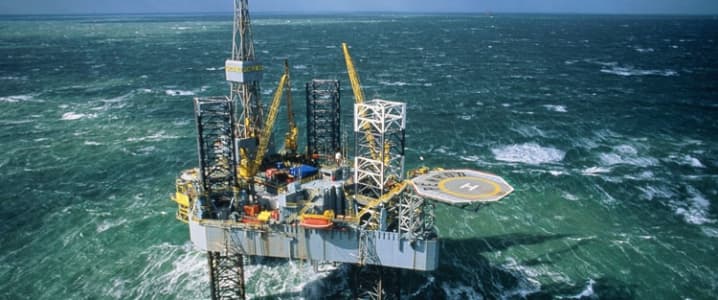The Brexit vote has not shaken up forecasts for North Sea oil and gas production, according to BMI Research, but a successful second bid for Scottish independence could slash output in the region.
BMI Research's core view on the UK's primary oil and gas sector remains unchanged, with oil output estimated to reach 978,000 barrels per day (bpd) in 2025.
Oil production is expected to grow through the 2018, driven by investments made in the days of higher oil prices between 2010 and 2014.
However, a downside scenario in which a second Scottish independence referendum is passed would create at least two further years of uncertainty for the sector from 2019 and could push production to below 864,000 bpd in the next decade, BMI said.
If Scotland were to initiate leaving the UK, there would be significant delays to new project investment, reduction of reinvestments, more job losses - which have already taken a toll on the sector - and more decommissioning due to tax incentives offered by Westminster.
Assuming maritime boundaries were drawn along the existing median line used to allocate fishing rights, an independent Scotland would take 95 per cent of oil production and 55 per cent of gas production, according to the Department of Energy and Climate Change. Related: Trump To Clear Way For Oil Pipelines
In an upside scenario, in which confidence in the North Sea is reaffirmed, investment in new oil and gas projects would be encouraged, weaker sterling would reduce costs and a proposed reduction to the area's frequently-slammed corporation tax, could lead to output reaching 1.1m bpd.
North Sea oil workers, unhappy with oil services firms' plans to introduce lower pay, longer hours and more demanding work schedules, downed their tools to strike for the first time in a generation this summer.
Low oil prices have taken their toll on oil producers and the black stuff is still worth less than half of its value in mid-2014, when prices were above $100 a barrel, as massive oversupply and flat demand continue to blight the market.
By Francesca Washtell via City AM
ADVERTISEMENT
More Top Reads From Oilprice.com:
- President Trump: This Is How To Bring Back 1 Million Energy Jobs
- IEA: If OPEC Doesn’t Cut, We’ll Drown In Oil
- Only One Thing Could Crush Global Oil Demand



















It's also important to note that Scotland receives no more than a population share of tax revenues from its oil resources - around 8% - and this would change to 100% in the case of Scotland's independence. Also Scottish workers are currently a minority fraction of the UK North Sea oil workforce and many North Sea oil company offices are evidently compelled to be based in London - these would also change in the case of independence to the benefit of Scotland [and detriment to rUK].
So this is a highly subjective and misleading article - and a headline article to boot! The title should perhaps be 'The largest threat [to the UK Westminster Govt revenues from Scottish] North Sea Oil', which would be factually correct. Independence would certainly be a threat to the rUK oil economy but would certainly be a massive opportunity for Scotland's oil economy. It's easy to argue that Scotland would manage its resources and the industry far more responsibly than the UK have, with a focus on long term recovery of the resource and long term health of the industry.
"If Scotland were to initiate leaving the UK, there would be significant delays to new project investment, reduction of reinvestments, more job losses"
The writer of this article made no attempt to back up this unsupported assertion.
What is the piont in Francesca Washtell and City AM?